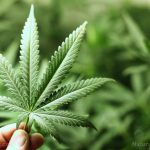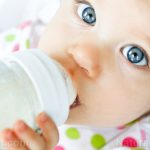
Abbott Nutrition’s infant formula was recalled after claims of bacterial contamination, infant deaths
Friday, May 13, 2022 by Mary Villareal
http://www.products.news/2022-05-13-abbott-product-recall-bacterial-contamination-infant-deaths.html

A major product recall by Abbott Nutrition, which pulled from shelves three of its powdered baby formula brands, has exacerbated the baby-food crisis in the United States.
The brands were pulled after reports of bacterial infection and illness among infant consumers emerged for products produced in the company’s Sturgis, Michigan facility. The cases involved at least two deaths.
Nearly 40 percent of infant formula is now out of stock in over 11,000 stores in the U.S., according to reports. This has led to increased demand for the product, with some retailers rationing supplies to avoid hoarding. (Related: Walgreens begins rationing baby formula amid a worsening supply chain crunch, forcing new parents to scramble.)
Meanwhile, major Canadian retailers said they haven’t been experiencing widespread shortages yet, although smaller store chains have already reported issues with stocks.
According to the national spokesperson for the Retail Council of Canada, some stores have struggled to maintain a steady supply of formula since 2021.
Canadian supermarket chain Loblaws has already stated that the supply chain issues and the Abbott recall have left holes in their shelves and affected their ability to stock certain kinds of formula. They have so far managed to find alternatives and were able to procure from other vendors.
However, some Canadian families still find it challenging to secure alternatives to Abbott’s hypoallergenic formula, and sometimes have to drive hundreds of kilometers or even cross the U.S.-Canada border to purchase products for their children.
According to experts, it’s imperative that Canadians not panic over the shortages as it may only worsen the crisis. Michelle Pensa Branco, the co-founder of the non-profit organization SafelyFed Canada, urged parents to remain calm and not to feel any attachment to any particular brand of baby formula. They are instead encouraged to consult with their pediatricians to find alternative brands.
Hypoallergenic formula biggest concern
David Banon, co-owner of a Pharmaprix in Montreal, said they noticed a drastic shortage of certain baby formulations in the last few months, noting that the biggest concern is around the hypoallergenic formula. He said that he’s already gotten in touch with Abbott, and the company told him it should be fully stocked by August.
A statement by the company said they are doing everything they can to address the supply shortage and that they’re prioritizing the production of infant formula products to help replenish the market supply. They are also flying in stocks of the formula every day from their Food and Drug Administration-registered facility in Ireland to try to meet demand.
Moreover, parents are advised to supplement their infants’ diets with more breast milk and move to solid foods as much as possible. “I want to discourage people from doing things like buying up a whole bunch of formula and storing it aside,” Pensa Branco said.
She further highlighted the fact that some families are sticking with specialty formula despite their children not actually needing it. She said a good number of parents who use these products don’t have a diagnosis of dairy allergy for their children, and are only buying them because of advice from friends.
For parents who do actually need the hypoallergenic formula for their children, the shortage poses real problems. One mother said she’s been in touch with her son’s doctor and pharmacist, but their recommendations were formulas that hadn’t worked in the past. “We’ve exhausted all of our options,” the mother said.
Despite the challenges with finding formula products in Canada, it seems that the shortage is more pronounced in the United States. According to Pensa Branco, this could be because their markets are different, as is the usage of these products. (Related: Researchers add prebiotics to infant formula in an effort to improve learning, memory, brain development to match that of breastfed babies.)
The shortages in the U.S. have also been increased by panic buying. Feyza Sahinyazan, an assistant professor of business at Simon Fraser University, said shortages are accelerated when panic sets in. “Fear of shortage is a self-fulfilling prophecy,” Sahinyazan said, noting that Canadian parents don’t have the same level of fear compared to Americans.
Visit FoodCollapse.com for more updates on baby formula and food shortages in North America.
Watch the video below for more information about the baby formula shortage that hit the U.S. and Canada.
This video is from the channel The Resistance 1776 on Brighteon.com.
More related stories:
Why is the media reluctant to cover the American baby formula shortage?
Emergency baby formula recipes for when SHTF.
Baby formula salmonella scandal in France exposes gaps in regulation and corporate responsibility.
Sources include:
Tagged Under: Tags: Abbott, baby food, baby formula, breast milk, food collapse, food shortages, food supply, grocery, hoarding, hypoallergenic formula, Infants, Product recall, products, rationing, scarcity, specialty formula, supply chain issues
RECENT ARTICLES


Abbott Nutrition’s infant formula was recalled after claims of bacterial contamination, infant deaths

Dr. William Mount: “United States Corporation” is causing the wheat distribution problem
By Kevin Hughes

Possibility of poor wheat harvest in China increases fears of global food collapse

The media is mentally preparing the American public for mass fuel shortages and rolling blackouts
By Ethan Huff
COPYRIGHT © 2017 PRODUCTS NEWS


